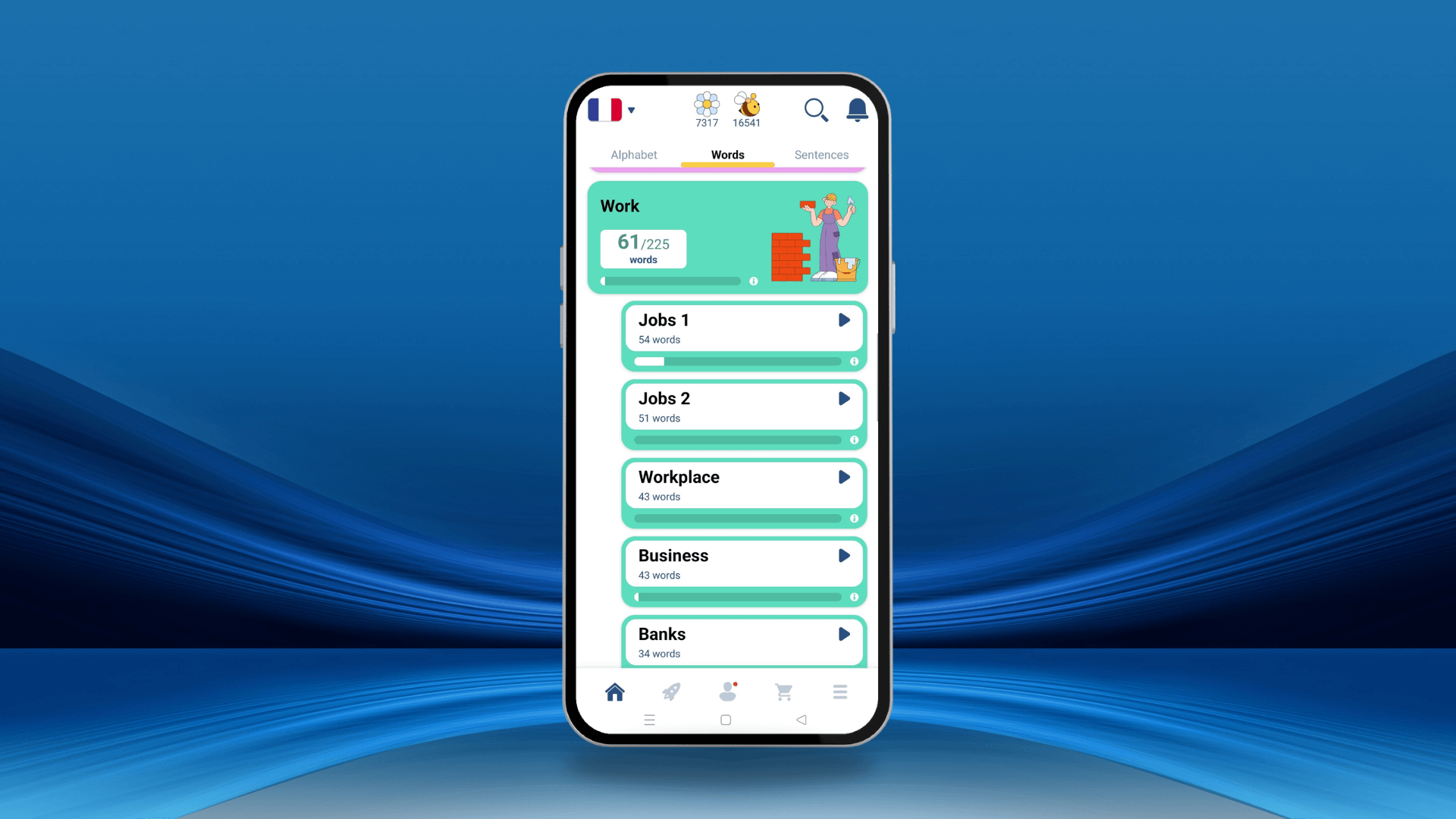As the global language of business, English is rich in idioms and colorful expressions that multilingual companies use daily. Global businesses often require their employees to have a good understanding of general business idioms and popular expressions, as well as industry-specific jargon. Let's go beyond buzzwords like "syncing," "synergy," "stakeholders," "agile," and learn a few solid expressions that will improve your communication in business settings.
#1 Back to the Drawing Board
When you hear "back to the drawing board," it means that something needs to be reconsidered from scratch and done again. The expression is commonly used when a product launch fails, a strategy doesn't yield the desired results, or in any situation where a radical change is needed.
The phrase dates back to the 1940s and is linked to engineering and design. In these industries, sketching and refining ideas were done on drafting boards, also called drawing boards.
Example: The marketing campaign didn’t hit the mark, so we're going back to the drawing board.
#2 Ballpark Figure
A "ballpark figure" is an approximate estimate. The term originates from "ballpark," referring to a baseball stadium. When a player hits a baseball, it usually lands in the same stadium or ballpark. That's roughly how the expression "in the ballpark" was used. The phrase then evolved into "ballpark figure."
Another possible origin is the commentators' estimates of the number of people attending the game. Their rough estimates, referred to as "ballpark figures," were based on the number of occupied seats.
Example: Can you give me a ballpark figure for the project cost before we finalize the contract?
#3 Bite the Bullet
To "bite the bullet" means to show courage in the face of a difficult situation. The idiom originated in the military, when soldiers would bite onto a bullet to deal with the pain of medical procedures. Since anesthesia was not available, biting the bullet was the only choice soldiers had to handle the pain.
Example: We'll have to bite the bullet and accept our competitors' offer.
#4 Blue-Collar
The phrase "blue collar" refers to manual workers and their occupations. As opposed to "white collar" workers, who worked in offices, "blue collar" workers worked in construction, maintenance, and manufacturing. The names come from the color of their clothes, including the actual collars. From a practical point of view, blue collars were preferred for manual workers, as dirt wouldn't be as visible on them as it would be on white clothes.
Example: The company is hiring more blue-collar workers to meet production demands.
#5 By the Book
When you do something "by the book," you follow all rules, instructions, and standards strictly, without deviation. The origin of the phrase most probably comes from using a literal book to follow guidelines. Another theory often linked to this idiom is the Bible, considered the book regulating morality and conduct. That also makes sense, especially since people would swear "by the book" in the courtroom, for instance.
Example: Amanda runs the department by the book, ensuring all processes meet compliance standards.
#6 Cut Corners
To "cut corners" means to take shortcuts in terms of time, effort, or money to achieve something. It's implied that doing so is either illegal or lowers the quality of the result. The origin of the phrase comes from rounding a corner when you want to shorten your route, despite potential risks.
Example: Cutting corners on quality control resulted in a defective product batch and numerous returns from unhappy customers.
#7 Get Your Ducks in a Row

The popular phrase "Get your ducks in a row" or "Have your ducks in a row" refers to arranging and organizing everything in preparation for an action. The phrase comes from the natural way ducklings line up neatly before following their mother. Other variations include "get your ducks lined up" or "line up your ducks." Some linguists suggest that the origin of the idiom is a game of pool, where a ball in front of a pocket is referred to as a "duck." To have a row of balls lined up meant to have one's ducks in a row. A third possible origin of the idiom is an amusement park game in which players shoot at a row of mechanical ducks.
Example: Before launching the campaign, let’s get our ducks in a row with the budget and timeline.
#8 Go Belly Up
In the business world, to "go belly up" means to fail, collapse, or go bankrupt. The phrase is an analogy of a dead fish that floats belly up in water. The metaphor paints a vivid picture and is frequently used in the press and business contexts when discussing financial collapses. The idiom is widely used in both British and American English.
Example: Many businesses went belly up during the 2020 pandemic.
#9 Have an Edge over Somebody
To "have an edge over" somebody else means to be at an advantage compared to them. Whether you are better, more prepared, or better equipped, you are in a better position to succeed. The phrase is often used when comparing competitors. Aside from business, the expression is also commonly used in sports, academic contexts, and competitions. Variations of the words include "Have the edge on" or "Have the edge over."
Example: We have a competitive edge over our competitors in delivering personalized customer experiences.
#10 Have the Upper Hand
If you're in a position of power or control in a specific situation, you "have the upper hand." The phrase has its origin in a game often used to select team players in sports. The captains of two teams take turns placing their hands on top of one another on a stick. The one whose hand reaches the top has the "upper hand" and is the first to choose the next team member. Another possible origin of the phrase is linked to card games, where having the "upper hand" meant holding the best cards.
Example: We have the upper hand in this negotiation due to our strong market position.
Speak a new language with confidence!
Build fluency faster with FunEasyLearn — just 10 minutes a day is enough to make real progress.
#11 Hit a Deadlock
To "hit a deadlock" is an idiom often used in the context of negotiations or discussions. It means reaching a point from which progress is impossible. Whether none of the sides can move or they refuse to negotiate, they are both stuck. The origin of the phrase is a literal door lock that cannot be opened.
Example: The talks have hit a deadlock over pricing disagreements.
#12 Hold All the Aces
If you "hold the aces" in a situation, you are at an advantage. The phrase comes from card games where the ace is the most powerful card. So, a player who has "all the aces" enjoys an obvious advantage over other players. In the late 19th and early 20th centuries, the phrase started to be used outside card-playing settings. You can often hear the expression in business, politics, sports, among other contexts.
Example: The new baseball team holds all the aces, with their star player joining the team.
#13 In the Loop
The expression "in the loop" means being informed and up-to-date with the latest information. The phrase originates from the military and aviation, where being "in the loop" means having received the latest updates. The phrase is widely used in business and everyday life.
Its antonym, "out of the loop," meaning to be excluded from critical information, is also used.
Example: Please keep Kevin in the loop on the project’s progress.
#14 In a Tight Corner
As you may guess, to be "in a tight corner" or "in a tight spot" means being in a challenging situation that is difficult to overcome. The origin is quite obvious - one who is physically trapped in a corner or restricted area is clearly in a difficult situation. Similar expressions include the following:
- "Backed in a corner."
- "In a pickle."
- "In a bind."
- "Between a rock and a hard place."
Example: The company is currently in a tight corner due to cash flow issues.
#15 In the Pipeline
When something is "in the pipeline," it is in progress, under development, or about to happen in the near future. Some of the things that can be in a pipeline include ideas, products, and projects. The idiom originates from the literal use of pipes in industry, specifically for moving water, gas, or oil from one place to another. The metaphor was first recorded in the 1930s-1940s, building an imagery around the flow of a substance through a pipe.
Example: We have several new products in the pipeline for release next year.
#16 In the Red
When a business or person is in debt or owes more money than it earns, it is said to be "in the red." The origin of the phrase is in accounting, where red ink used to indicate negative amounts, while black ink marked profit. That's how two phrases started to spread, "in the red" and its opposite, "in the black."
Example: Many American retailers are in the red after Thanksgiving until the holiday shopping season begins.
#17 Keep One’s Eyes on the Ball
The idiom "keep one's eyes on the ball" means staying focused on a particular task and avoiding distractions. It originated from sports such as tennis, baseball, and golf, where players must focus on the ball to win. "Keep your eyes on the ball" is the most popular piece of advice coaches give in all ball sports. The variation "Keep your eye on the ball" is also used and has the same meaning.
Example: With so many ongoing projects, we need to keep our eyes on the ball to meet deadlines.
#18 Learn the Ropes

When you familiarize yourself with the way you have to do an activity, task, or job, you "learn the ropes." The expression is commonly used when referring to newcomers in various fields, including business, internships, and teaching. Whether in a new job or an unfamiliar environment, they need to learn the basics. The phrase has nautical origins, specifically from the world of sailing. One of the first things for young sailors to master was the system of ropes and knots used to operate a ship. The idiom "Learning the ropes" has been popularized and is used in various fields. Some of its variations include the following:
- "Know the ropes."
- "Show someone the ropes."
- "Teach the ropes."
Example: It took Samantha a few weeks to learn the ropes for her new role.
#19 Low-Hanging Fruit
To understand the phrase "low-hanging fruit," we need to think of a tree. The fruit higher up on the tree is harder to reach, while ripe fruit on lower branches is easy to pick. The expression is widely used in business, marketing, SEO, and other areas. Synonyms of "low-hanging fruit" include "quick win," "easy picking," and "easy target."
Example: Let’s tackle the low-hanging fruit in this project for some quick progress.
#20 Move the Needle
The expression "move the needle" can be traced back to the Industrial Revolution in Britain. As the use of machines entered everyday life, so did expressions related to their components. The gauges from steam engines and other machines are no exception. A moving needle on these devices showed noticeable progress. Around the 1980s, the phrase was adopted by business, referring to measurable change or visible progress. It is often used to speak about sales, profits, or performance.
Example: The new campaign really moved the needle on our sales figures.
#21 On the Same Wavelength
The popular expression "on the same wavelength" means to be in agreement with someone, to share the same views, or think alike. The phrase has its origin in the 20th century, and spread as more people started to use the radio and understand how it works. Just as radio communication requires the speaker and the receiver to be on the same wavelength, people need to share similar thoughts to understand each other clearly. The idiom is often used to describe teamwork, personal relationships, politics, and situations where people share a common perspective.
To say the opposite, refering to misunderstandingsuse "on different wavelengths." meaning that there are misunderstandings, misalignment, or conflicting ideas.
Example: The director is seeking a manager who is on the same wavelength as him.
#22 Plug and Play
The term "plug and play" refers to technology that is ready to use immediately after connection, with minimal setup or configuration required. The phrase highlights the ease of use, referring to how straightforward it is to plug something in and start using it immediately. Microsoft's Windows highly popularized the expression in the 1990s. The phrase evolved to also refer to peripherals, then expanded to gadgets and software.
Example: The software’s plug-and-play functionality ensures quick setup.
#23 Put Something on the Back Burner
Unlike the previous three expressions, this one comes from cooking. Most kitchens, especially in restaurants, have stoves with more burners. The ones in front and closer to the cook require immediate attention and action. The back burners, by contrast, are for dishes that cook more slowly and can be left unattended. When cooks put something on the back burner, those pots are low priority. The idiom spread to business, personal life, and politics, to talk about something that is of low priority at the moment.
Example: We’ll put the expansion plans on the back burner until we secure more funding.
#24 Learning Curve
A "learning curve" refers to how fast one can learn something. The phrase is often used in academic and workplace contexts, from onboarding to learning new skills. German psychologist Hermann Ebbinghaus first used the phrase in the 19th century. Actually, it came in the context of his focus on the concept of the "forgetting curve." The phrase gained popularity in 1936, when experiments were conducted to research whether workers' increased expertise could reduce manufacturing costs.
The term "steep learning curve" is used to describe a learning process that is initially challenging and requires considerable effort and time to master. So, learners should expect difficulties before they can see any improvements.
Example: The new software has a steep learning curve, but the functionality is worth the effort.
#25 Touch Base
The phrase "touch base," so popular in business and casual contexts, comes from baseball. A player must touch each of the four bases in the correct order to stay "safe." The expression to "touch base" means to briefly communicate to be in alignment. Synonyms include phrases such as "check in," "follow up," "circle back," and "sync."
Example: Let’s touch base next week to review the project's status.
#26 Trim the Fat
To "trim the fat" means to cut down on unnecessary expenses and actions, to optimize a process. The origin of the phrase is from the literal action of removing the excess fat from meat edges to prepare it for cooking. The expression spread from the kitchen to business and everyday life to describe the removal of something wasteful.
Example: We need to trim the fat from the budget to improve profitability.
#27 Work Against the Clock
To work against the clock means to complete a task, usually under pressure or a tight deadline. Think of a classic clock, which is constantly moving. To meet a deadline is like racing against the clock. The phrase is often used in general, everyday contexts, as well as in business and sports. Synonyms include "Race against time" and "Beat the clock."
Example: The team is working against the clock to finalize the proposal before the deadline.
Learn Languages with FunEasyLearn

FunEasyLearn is an award-winning app that transforms language learning into an engaging tool for millions of learners worldwide. Based on the time-tested lexical approach, the app is an efficient pocket companion for language learning. You can choose a plan for yourself, one to include your friends and family, or a team subscription. Employers choose FunEasyLearn to foster effective communication across their multinational teams.
Key Features:
- Gamified Learning. Learn effortlessly with over 30 interactive games and 11,000 hand-drawn illustrations to enhance retention across more than 350 topics, covering an average of 6,000 words and 5,000 phrases and expressions per course.
- Correct Pronunciation Practice. Access 300,000 native-speaker audio files recorded in professional studios.
- Offline Accessibility. Enjoy uninterrupted learning with an ad-free offline mode.
- Personalized Experience. Tailor learning to your specific goals with unrestricted navigation to any topic, custom settings, and helpful reminders. Premium plans also include a Smart Review manager, custom Favorite lists, and a hands-free mode to learn on the go.
- Admin Platform. As an employer or manager, you can access an admin platform to monitor your team's progress through detailed statistics.
Do you really want to learn a new language?











